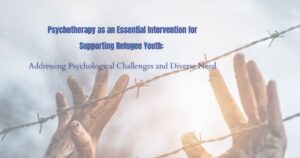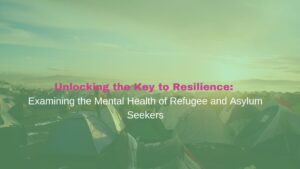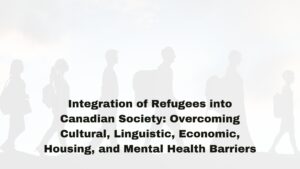
Jennifer House, RP-Q
Occupation:
PsychotherapistCore skills:
Working with bothTeens and adults
credential
Jennifer House Registered PsychotherapistPhones:
1 +(548) 866-0366email:
mail@resiliencec.comlocation:
111 Waterloo St. London ON N6B2M4
Latest Post

According to a study by the World Health Organization (WHO), refugee youth who have experienced oppression and violence in their home countries often face significant psychological challenges upon arriving in their host countries. These challenges can include symptoms of depression, anxiety, and post-traumatic stress disorder (PTSD) (WHO, 2018). To support these youth in their integration process, it is important to provide them with well-informed interventions, including psychotherapy, that can help them address both their previous experiences and ongoing challenges in their new environment.

As the global refugee and asylum seekers crisis continues to grow, it is becoming
increasingly important for those affected to be aware of the mental health resources available to
them. Seeking therapy can provide refugees and asylum seekers with the emotional support,
education, and guidance needed to cope with their traumatic experiences. For many, fleeing their
homes and leaving behind everything they had grown accustomed to, can be a traumatic
experience. Psychological issues that may arise from this experience include depression, anxiety,
stress, and post-traumatic stress disorder (PTSD).
Integration of refugees into Canadian society is a complex process requiring the surmounting of numerous obstacles, such as cultural, linguistic, economic, housing, and mental health barriers. These obstacles can contribute to refugees’ fear of integration and have a negative impact on their health. A comprehensive strategy addressing these obstacles is essential for successful integration.
